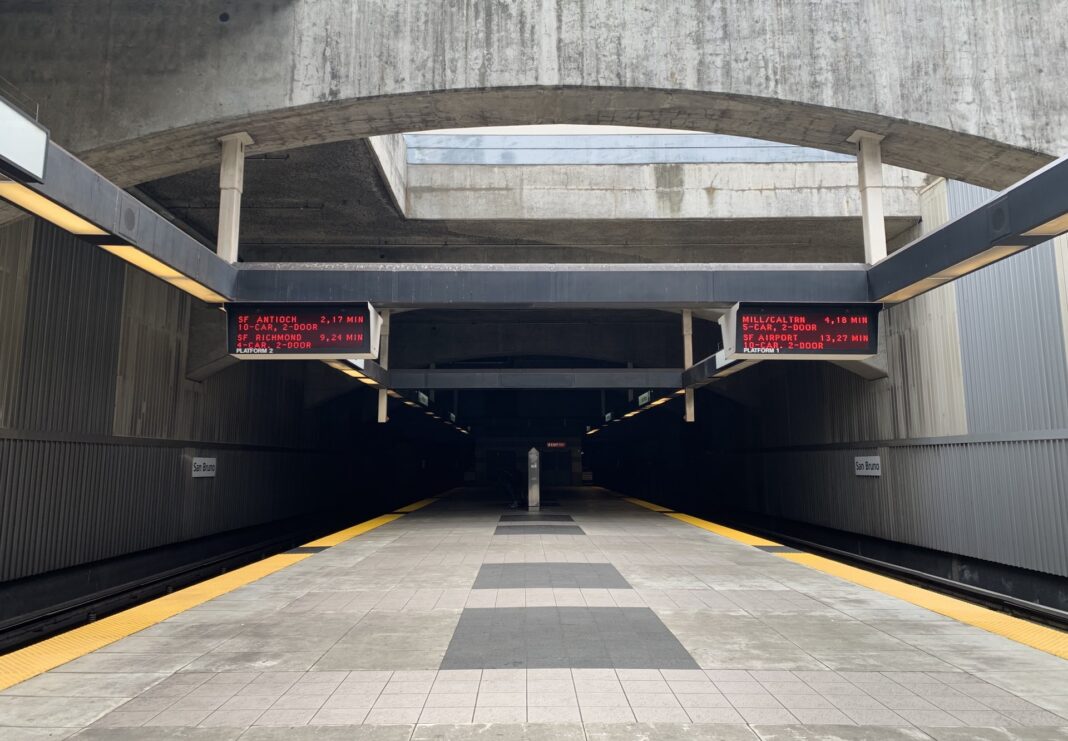SAN FRANCISCO—On Tuesday, September 22, the Bay Area Rapid Transit District (BART) announced its partnership with Mobilite to bring 5G connectivity to passengers throughout its railway stations and rail cars by 2023.
The BART train system, started by the San Francisco Municipal Transportation Agency (SFMTA) in 1972, is the fifth busiest public transportation system by ridership in the United States consisting of 50 stations and 669 legacy revenue vehicles which operate throughout the Bay Area. Mobile network reception is currently inconsistent throughout the BART system.
Mobilite, headquartered in Newport Beach, California, is self-reported to be the largest privately-held wireless infrastructure provider in the United States for a wide array of industries including entertainment, real estate, education, healthcare, government, and transportation. The company funds, installs, and operates neutral host distributed Antenna Systems (DAS), Small Cell, and Wi-Fi networks to cater high-speed mobile communications.
Through their partnership with BART, Mobilite will provide passengers a 5G network, a 5th generation mobile network designed to be anywhere around 10 to 100 times faster than 4G. A 2018 network simulation conducted in both Frankfurt, Germany and San Francisco, California by Qualcomm Technologies, Inc., found that 5G connections perform substantially better than what is currently possible with 4G across multiple metrics. A research summary states, “These emerging 5G networks will have the capacity and performance to support a whole host of new services and experiences beyond the traditional categories of browsing, downloading, and streaming.”
According to a BART press release, 5G within the BART system will be provided by four means: underground wireless DAS in SFMTA tunnels downtown, wayside wireless communications and small cells along the rail line, Wi-Fi connectivity throughout, and a fiber plant installed along the entire rail right of way (RoW), which will improve network coverage to over 25 Bay Area cities.
Physical implementations will be installed in almost 11 miles of existing tunnels, 11 underground stations, and an incoming central subway line expected to be completed next summer. Wi-Fi 6 or 802.11ax, the most updated Wi-Fi networks, will be deployed throughout 48 stations, including a future fleet of trains to come, CNET reported. The promised fiber network will include dark and lit fiber options to improve communication networks and broadband internet services, support for carrier hotels and data center connectivity.
BART general manager, Bob Powers told 5G Radar: “Providing passengers with seamless and uninterrupted connectivity is one of our top priorities to enhance the customer experience. Working with Mobilitie for this digital transformation will improve broadband connectivity across our system and for our riders. Ultimately, people will have better access to real-time information and a more convenient and easier to use transit.”







